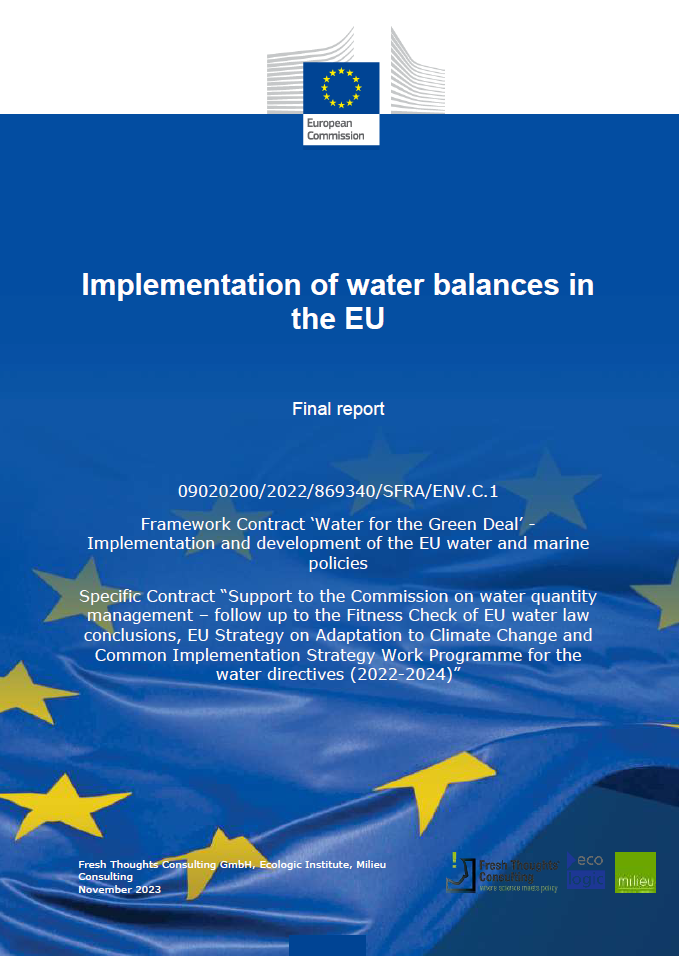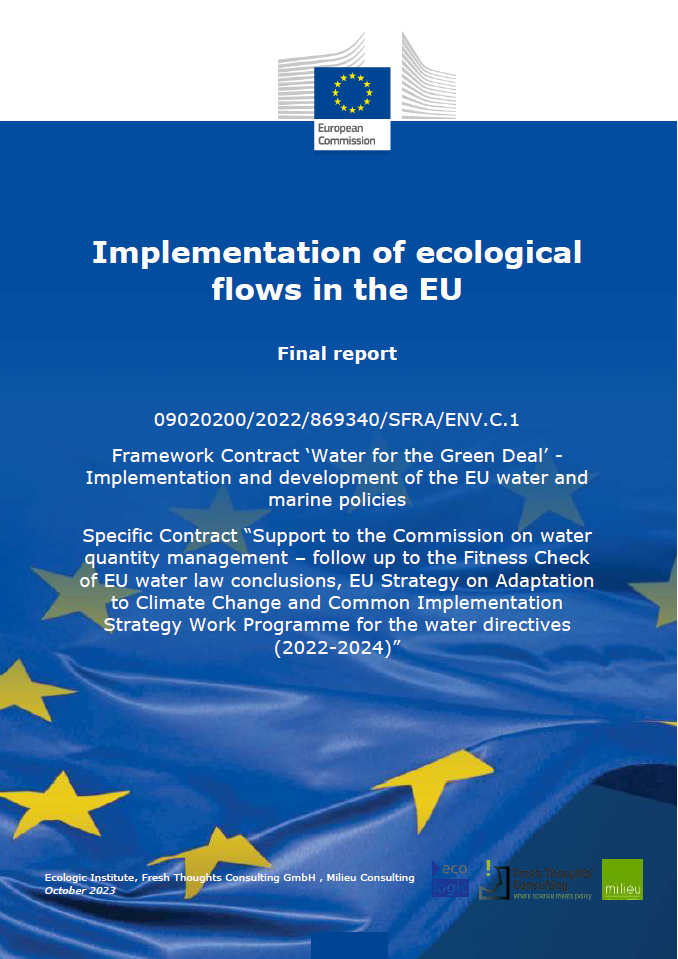Implementation of Water Allocation in the EU
- Publication
- Citation
Rouillard & Schmidt (2023): Implementation of water allocation in the EU. Developed under the Framework Contract ‘Water for the Green Deal’ - Implementation and development of the EU water and marine policies (09020200/2022/869340/SFRA/ENV.C.1). Specific Contract “Support to the Commission on water quantity management – follow up to the Fitness Check of EU water law conclusions, EU Strategy on Adaptation to Climate Change and Common Implementation Strategy Work Programme for the water directives (2022-2024)”
With climate change, the impacts of water scarcity and droughts are becoming of increasing concern in Europe. Water allocation mechanisms are major levers to increase water resilience, however, little work has yet occurred on the topic at EU level. This report, prepared in cooperation with members of the ad-hoc technical group on Water Scarcity and Droughts of the EU Common Implementation Strategy (CIS) for the Water Framework Directive (WFD), reviews the literature and practice for water allocation mechanisms. It identifies key challenges in EU Member States and highlights examples of methods in place.
Member States currently face several challenges when implementing water allocation mechanisms, for instance when setting the right legal and regulatory regimes, adopting strategies to match water abstraction with available water resources and preserve aquatic ecosystems, facilitating reallocations between water uses, and when ensuring compliance with allocations. Approaches to water allocation vary significantly between Member States, and there is limited understanding of how water allocation link with water balances and ecological flows under the WFD.
This report presents, for some of these challenges, illustrative examples on how to address them that have been collected from volunteering Member States. These examples could guide others that are still in the process of setting up water allocation mechanisms or struggling with implementation challenges.
Key recommendations of the report include, amongst others:
- To clarify the contribution of water allocation mechanisms to the WFD objectives and sustainable water management, in particular the relationship with ecological flows and water balances, as well as their role in the River Basin Management Plans (RBMPs) and the integration in other policies.
- To clarify the role of water allocation mechanisms for mitigating climate change impacts, increasing resilience, and supporting the adaptation and transformation of economic sectors, infrastructures, and land uses.
- To identify and assess possible strategies available to water managers to tackle overallocation and reduce allocations to match the available water resources in the long term and during dry/drought conditions (for instance, how to modify historical water use rights).
- To explore the effectiveness of enforcement of water allocation decisions (e.g., compliance monitoring systems for different water uses, penalties/fines).
- To better coordinate with sectoral policies and to support investments to reduce trade-offs of water (re)allocation; sharing experiences in dealing with opposition from water users and on the use of relevant funding mechanisms at country level.
- To improve the understanding and acceptance of (changes in) water allocation by different stakeholders including consumptive and non-consumptive water users, and competent authorities.
- To establish criteria to assess the implementation and performance of different water allocation policies.
To help address ongoing challenges faced by Member States, these topics could soon be areas of work for the Ad-hoc technical Working Group on Water Scarcity and Droughts.

